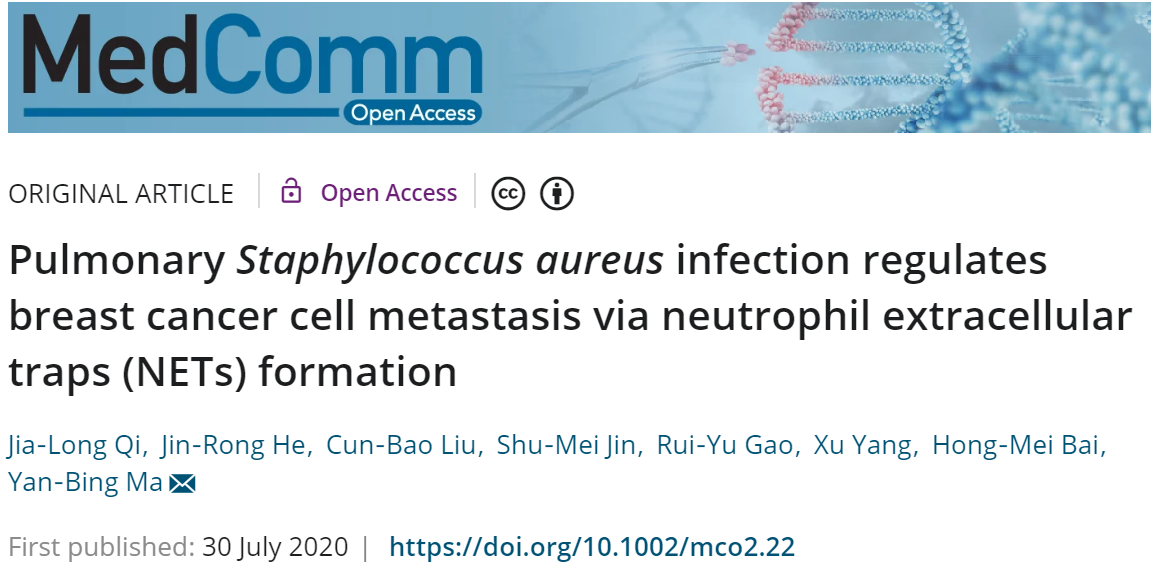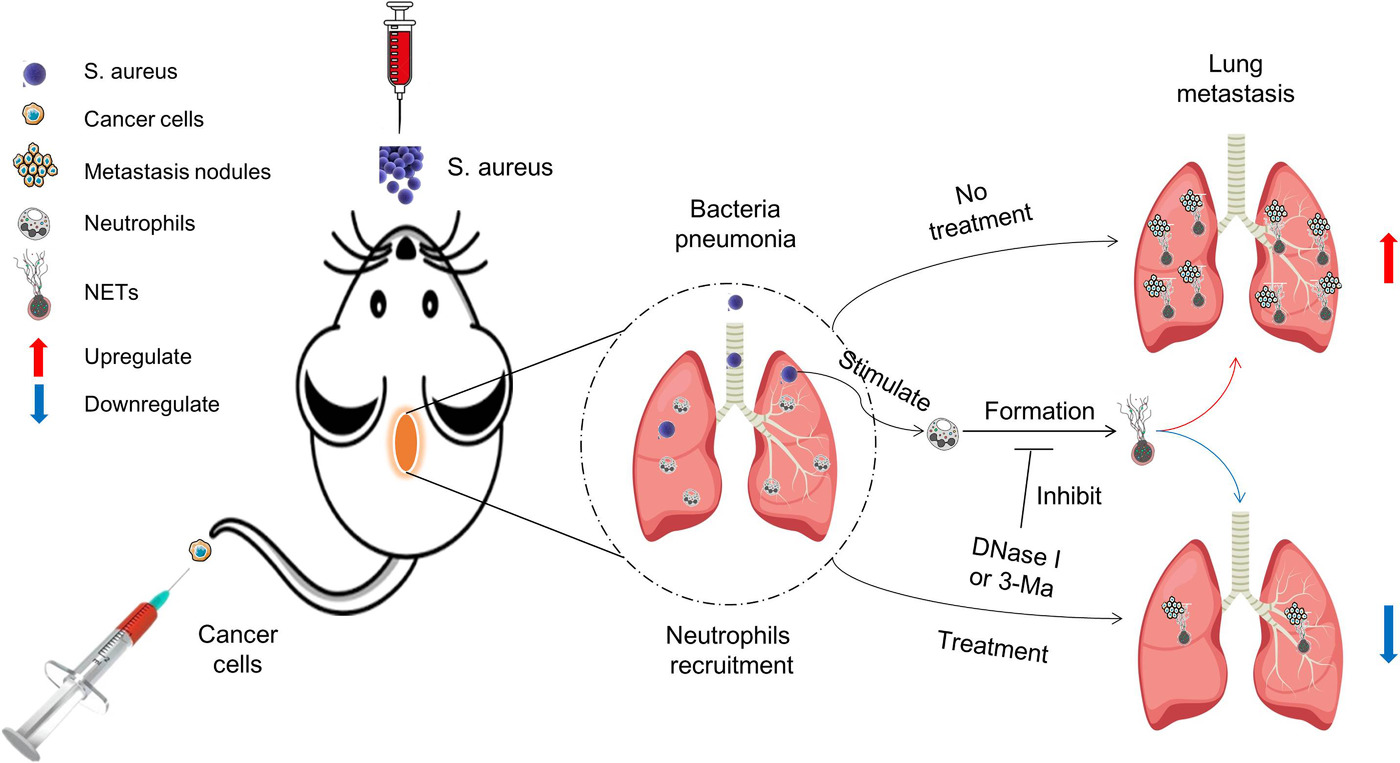Neutrophil extracellular traps (NETs) has been demonstrated as of ultmost importance for host tissue homeostasis in bacteria infection. Since a large proportion of cancer patients receiving immunotherapy are suffering from sever pneumonia infection, here, researchers from Chinese Academy of Medical Sciences and Peking Union Medical College, clarified the relevance between lung metastasis and neutrophil extracellular traps (NETs).

The formation of neutrophil extracellular traps (NETs) was recently identified as one of the most important processes for the maintenance of host tissue homeostasis in bacterial infection. Meanwhile, pneumonia infection has a poor effect on cancer patients receiving immunotherapy. Whether pneumonia‐mediated NETs increase lung metastasis remains unclear.
In this study, we identified a critical role for multidrug‐resistant Staphylococcus aureus infection‐induced NETs in the regulation of cancer cell metastasis. Notably, S. aureus triggered autophagy‐dependent NETs formation in vitro and in vivo and increased cancer cell metastasis (Fig. 1). Targeting autophagy effectively regulated NETs formation, which contributed to the control of cancer metastasis in vivo. Moreover, the degradation of NETs by DNase I significantly suppresses metastasis in lung. Our work offers novel insight into the mechanisms of metastasis induced by bacterial pneumonia and provides a potential therapeutic strategy for pneumonia‐related metastasis.

Fig. 1 Schematic diagram of bacterial pneumonia‐mediated NETs that promote cancer metastasis.
Article Access: https://onlinelibrary.wiley.com/doi/10.1002/mco2.22
Website for MedComm: https://onlinelibrary.wiley.com/journal/26882663
Looking forward to your contributions.







